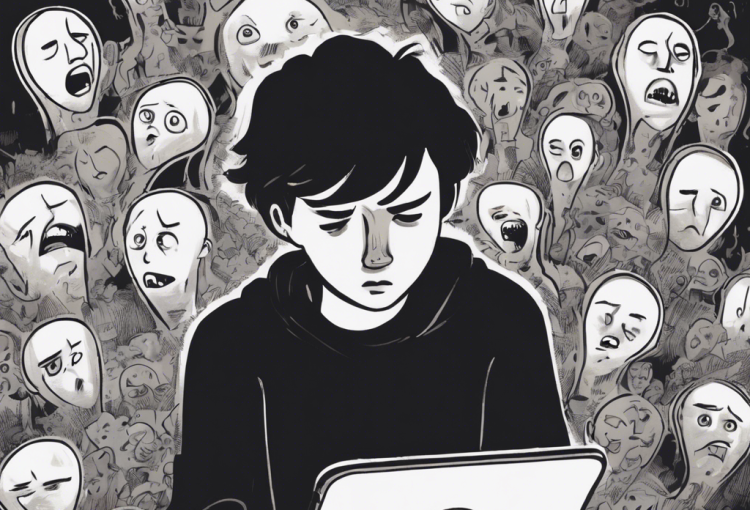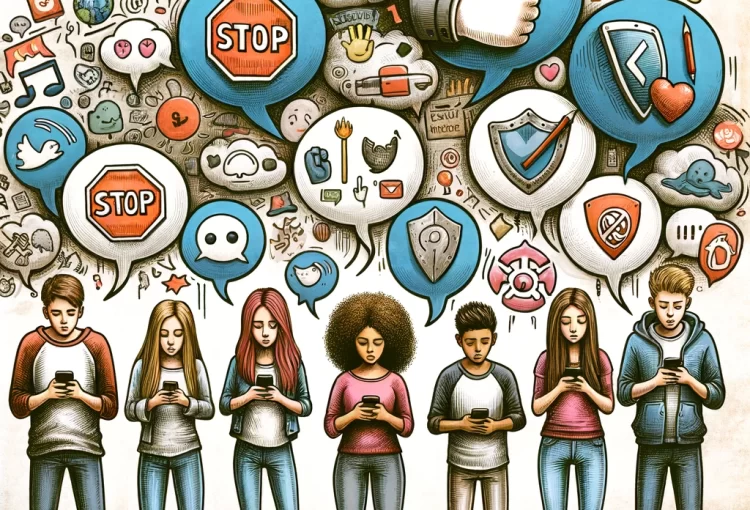Peer pressure and social media have become intertwined as digital communication takes center stage. Although these platforms have transformed our ability to connect and express ourselves, they’ve also created new realms for peer pressure. By witnessing the seemingly perfect lives of others, many users fall into the trap of attempting to meet these often unrealistic body standards.
For example, a young person might scroll through posts of friends enjoying an event they weren’t invited to. They may feel left out, triggering feelings of inadequacy and loneliness. The digital age brings the phenomenon of virtual exclusion, which can greatly impact an individual’s self-worth. This illustrates the strong bond between peer pressure and social media, where the fear of missing out often drives people to adopt behavior that aligns with perceived societal norms.
Effects of Peer Pressure and Social Media on Mental Health
In the age of social media, the influence of peer pressure has magnified considerably. It’s no longer confined to physical spaces like school corridors or playgrounds. Now, it follows us into our homes and bedrooms, accessible through every tap and swipes on our devices. The effects of this continuous exposure to peer pressure and social media can have profound implications for our mental health.
Anxiety and Depression

Research indicates that excessive use of social media can lead to increased levels of anxiety and depression. This is often due to the constant comparison with others and the pressure to live up to an unrealistic standard set by what we see online. As King Solomon wisely said in Proverbs 14:30 (NIV), “A heart at peace gives life to the body, but envy rots the bones.” The envy and comparison triggered by social media can lead to emotional distress.
Lower Self-esteem
The need for validation through likes, shares, and comments can result in lower self-esteem. Users may begin to value themselves based on the feedback they receive on social media, creating a cycle of dependence and insecurity. Remember the words of Psalm 139:14 (NIV), which declares, “I praise you because I am fearfully and wonderfully made; your works are wonderful. I know that full well.” Our worth is intrinsic and not defined by external validation.
Social Isolation
While social media is designed to connect us, it can often lead to feelings of loneliness and social isolation. This can happen when the virtual connections we form online replace genuine, face-to-face interactions. As the book of Ecclesiastes 4:9-10 (NIV) suggests, “Two are better than one…If either of them falls, one can help the other up. But pity anyone who falls and has no one to help them up.” Real-life connections can provide the support that virtual connections often can’t.
Distorted Body Image
With social media being saturated with ‘ideal’ images of beauty and physique, it can create a distorted body image among users, leading to dissatisfaction, unhealthy behaviors, and even eating disorders. Again, it’s crucial to understand that each person is “fearfully and wonderfully made” (Psalm 139:14) and that true beauty comes from within.
Recognizing these potential effects of peer pressure and social media on mental health is the first step toward managing their impact. As 1 Peter 5:7 (NIV) encourages us, “Cast all your anxiety on Him because He cares for you.” We are not alone in our struggles; God is always ready to help and support us. And if the pressures of social media become too much to handle alone, it can be beneficial to seek professional support, such as through our virtual counseling services.
Strategies for Resisting Peer Pressure on Social Media

Dealing with peer pressure on social media isn’t easy, especially in a world that’s increasingly digitized and interconnected. However, there are strategies one can adopt to resist this modern form of pressure. Here are some tips distilled from various sources:
- Set boundaries for your social media use: Limiting your daily screen time or consciously putting away your phone or computer can help reduce exposure to peer pressure.
- Refuse to compare yourself with others: As Apostle Paul said in Galatians 6:4 (NIV), “Each one should test their own actions. Then they can take pride in themselves alone, without comparing themselves to someone else.” Remember that social media often showcases the highlight reels of people’s lives, not their everyday reality.
- Measure your success by your own goals: Define what success means to you, not by what others deem as successful. Romans 12:2 (NIV) advises us not to conform to the pattern of this world but be transformed by renewing our minds.
- Choose your friends wisely: Proverbs 13:20 (NIV) counsels, “Walk with the wise and become wise, for a companion of fools suffers harm.” Surround yourself with friends who share your values and interests.
- Visualize and recognize peer pressure: Understanding what peer pressure looks like can help you identify and resist it when it occurs.
- Develop the ability to say “No” effectively: A firm, assertive, but respectful refusal can be a powerful tool.
- Seek positive role models: Align yourself with people who can guide and inspire you to make wise decisions.
- Find support: Discuss your experiences with friends who are also dealing with peer pressure. You are not alone in your struggles, and mutual support can be incredibly empowering.
- Value yourself: Each of us is unique and has something special to offer. Remember this when you face pressure to conform to others’ expectations.
- Pursue personal excellence: By focusing on your personal growth and aspirations, you can shift your attention away from the pressure to conform and toward your individual goals.
By adopting these strategies and grounding our actions and decisions in our faith, we can resist peer pressure on social media. As it says in James 4:7 (NIV), “Submit yourselves, then, to God. Resist the devil, and he will flee from you.” Similarly, when we resist peer pressure and stand firm in our beliefs, we can maintain our mental health and spiritual well-being in the digital world.

Virtual Counseling: A Light Amidst the Struggles
In response to these challenges, an invaluable resource is emerging in the form of virtual counseling. It provides a safe space to express fears, doubts, and pressures associated with social media, offering insights and strategies to cope effectively.
A counselor can guide you in identifying unhealthy patterns on social media, setting boundaries for your usage, and cultivating a positive self-image. They provide a listening ear, supportive advice, and practical tools to handle the pressure amplified by social media.
Harnessing the Power of Prayer Against Peer Pressure
A critical and often underestimated weapon against the influence of peer pressure and social media is the power of prayer. Prayer equips us with the resilience to resist societal pressures.
Scripture encourages us, “Do not conform to the pattern of this world, but be transformed by the renewing of your mind.” (Romans 12:2). This verse emphasizes the role of prayer in rejuvenating our spirit and strengthening our resolve against external pressures.

